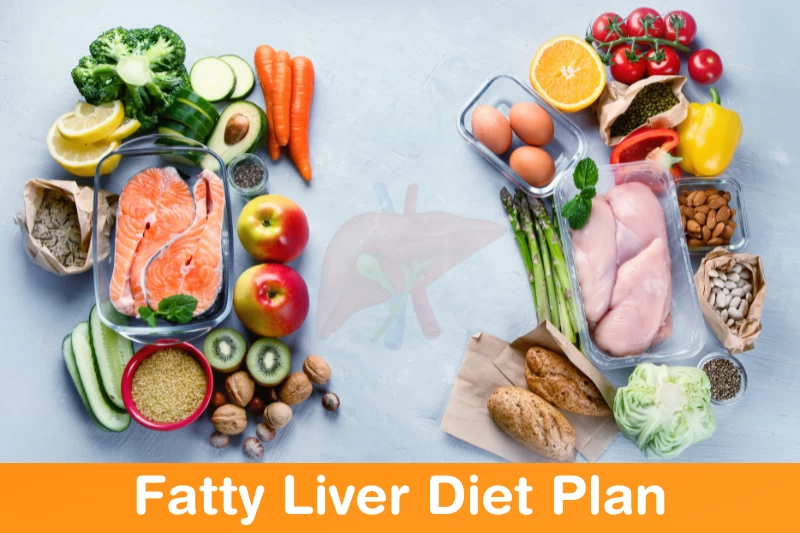
- 25th March 2023
Table of Contents
What is Fatty Liver Disease?
Fatty liver disease is a condition characterized by the accumulation of fat in the liver cells. There are two types of fatty liver disease: alcoholic and non-alcoholic. Alcoholic fatty liver disease is caused by excessive alcohol consumption, while non-alcoholic fatty liver disease (NAFLD) is usually associated with obesity, high cholesterol levels, insulin resistance, and metabolic syndrome. NAFLD affects up to 25% of the population worldwide and can progress to more severe forms of liver damage such as cirrhosis or hepatocellular carcinoma. Fermented foods have been shown to have beneficial effects on overall gut health and may be particularly helpful for those with NAFLD. Fermentation involves the breakdown of carbohydrates into lactic acid by bacteria or yeast, which produces an acidic environment that can inhibit harmful bacteria from growing in the gut. This process also leads to an increase in beneficial probiotics that help regulate digestion and boost immune function. Some examples of fermented foods include yogurt, kefir, sauerkraut, kimchi, miso soup, tempeh and kombucha tea. These foods contain live cultures that promote a healthy balance of gut bacteria which could help prevent inflammation associated with NAFLD progression. In addition to their potential benefits for fatty liver disease patients, fermented foods offer several other health benefits such as improving heart health and reducing inflammation throughout the body.
Fermented Foods: Definition and Types
There are many different types of fermented foods available that can be beneficial for individuals with fatty liver disease. One common type is yogurt, which is made by fermenting milk with bacteria. Yogurt contains probiotics, which are live microorganisms that can help improve gut health and reduce inflammation in the body. Another popular fermented food is kimchi, a Korean dish made from cabbage and other vegetables that have been seasoned with spices and salt before undergoing fermentation. Kimchi contains lactic acid bacteria, which have been shown to improve digestive function and reduce inflammation. Kombucha is another fermented food that has gained popularity in recent years. It's a sweetened tea that undergoes fermentation through the use of yeast and bacteria cultures. Kombucha has been associated with improved gut health, immune function, and even potential benefits for metabolic conditions like fatty liver disease. Overall, incorporating these types of fermented foods into your diet may offer numerous health benefits for individuals with fatty liver disease or other conditions related to poor gut health or inflammation.
Anti-Inflammatory Benefits of Fermented Foods
Fatty liver disease is a medical condition in which excess fat accumulates in the liver, leading to inflammation and damage. Fermented foods have been found to be beneficial in reducing inflammation and promoting liver health. The anti-inflammatory properties of fermented foods are attributed to the presence of probiotics, which help maintain a healthy balance of gut flora. Studies have shown that consuming fermented foods can improve insulin sensitivity and reduce oxidative stress, both of which contribute to fatty liver disease. Fermented foods like kefir, kimchi, kombucha, sauerkraut and yogurt are rich sources of probiotics that can help reduce inflammation throughout the body. Regular consumption of these nutrient-dense fermented foods can also boost the immune system by improving gut health. Additionally, they can increase absorption of nutrients from food by aiding digestion via their enzymes and organic acids content that break down complex molecules into simpler forms that your body easily absorbs. Overall, integrating fermented foods into your diet may improve your overall health while reducing inflammation in cases like fatty liver disease.
Gut Health Benefits of Fermented Foods
Fermented foods have been shown to have numerous benefits for gut health, including improving digestion and boosting the immune system. However, recent studies have also indicated that fermented foods can be beneficial for individuals suffering from fatty liver disease. Fatty liver disease is a condition where fat accumulates in the liver cells, leading to inflammation and scarring of the liver tissue. This condition is closely linked to obesity, diabetes, and other metabolic disorders. Fermented foods such as kimchi, kefir, sauerkraut can help reduce inflammation in the body by promoting healthy gut bacteria. In particular, fermented foods contain high levels of probiotics which are known to improve gut health and reduce inflammation throughout the body. Probiotics also aid in reducing insulin resistance which is a significant risk factor for fatty liver disease development. Additionally, fermented foods like kombucha contain acetic acid which has been shown to help regulate blood sugar levels - another important factor in managing fatty liver disease.

Weight Management with Fermented Foods
Fermented foods have gained popularity in recent times due to their numerous health benefits. They are beneficial for weight management, digestion, immune system support, and more. Additionally, fermented foods have been found to be helpful in treating fatty liver disease. Fatty liver disease results from the accumulation of fat deposits in the liver. This condition is common among overweight and obese individuals. Consuming fermented foods can help reduce inflammation in the body that contributes to fat storage and insulin resistance. Furthermore, fermented foods like kimchi and sauerkraut contain probiotics that can promote gut health by increasing good bacteria in the digestive system. Gut health plays a significant role in overall well-being and healthy metabolism rates. Incorporating fermented foods into your diet can provide an effective way to manage weight while also addressing fatty liver disease symptoms.
Other Health Benefits of Eating Fermented Foods
In addition to aiding in the prevention and treatment of fatty liver disease, fermented foods offer a variety of other health benefits. For example, they contain probiotics that help keep the gut healthy and balanced by promoting beneficial bacteria growth. This balance is essential for maintaining overall health as it can affect mood, immune function, digestion, and even weight. Fermented foods are also rich in nutrients such as vitamins B and K2 which are important for bone health. Vitamin K2 specifically helps regulate calcium metabolism which affects bone density. Furthermore, fermentation breaks down anti-nutrients found in some foods making them more easily digestible while increasing their nutrient availability. Lastly, consuming fermented foods has been linked to reduced inflammation throughout the body which can prevent many chronic diseases such as heart disease and cancer. Fermentation produces bioactive compounds that have antioxidant properties helping protect against oxidative stress caused by free radicals.
Conclusion: Improved Quality of Life
In conclusion, the consumption of fermented foods has been shown to have a positive impact on the quality of life for individuals with fatty liver disease. Studies have suggested that these foods can help to improve liver function and reduce inflammation in the body. This can lead to a decrease in symptoms such as fatigue, abdominal pain, and jaundice. Furthermore, incorporating fermented foods into one's diet may also improve overall digestive health. The probiotics found in these foods can help to populate the gut with good bacteria, which can aid in digestion and absorption of nutrients from food. This may lead to an increase in energy levels and a reduction in symptoms such as bloating or constipation. Overall, while additional research is needed to fully understand the benefits of fermented foods for those with fatty liver disease, current evidence suggests that incorporating them into one's diet may lead to an improvement in quality of life.














